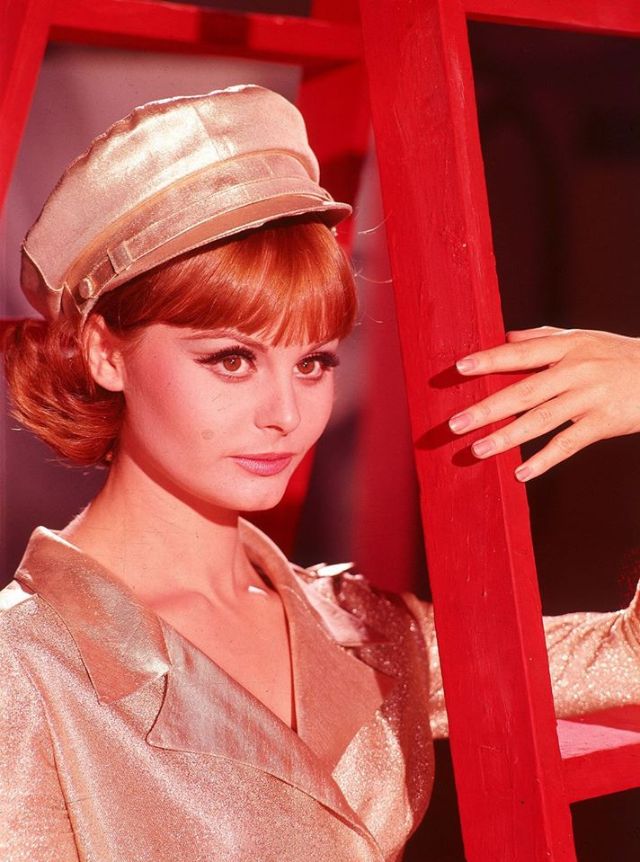Born 1944 as María de los Ángeles de las Heras Ortiz in Madrid, Spanish singer and actress Rocío Dúrcal began her artistic career by participating in various radio song festivals and competitions.
In 1959, Dúrcal participated in the television program Primer Aplauso, broadcast by Televisión Española. The theme that she chose for the contest was the traditional song “La sombra vendo”. Luis Sanz, a Madrid manager who watched the show, was impressed by her talent and personality. Sanz contacted the program for the name and the address of the young contestant.
Dúrcal had her film debut in Canción de Juventud (1961). The movie scored huge box office and critics success. This success was repeated in other Spanish-speaking countries where the movie was shown. Immediately Dúrcal became the star of Rocío de La Mancha. Following this, she got her first record deal with transnational Phonogram (now Universal Music). The songs the artist played in both films served to make her first album, Las películas de Rocío Dúrcal (1962).
Her other notable films included Tengo 17 años (1964), Más bonita que ninguna (1965), Acompáñame (1966), Amor en el Aire (1967), and Cristina Guzmán (1968). Her last film was in Me Siento Extraña in 1977.
In 2005, Dúrcal received a Latin Grammy Award for musical excellence, a prize that is awarded by the Governing Board of the Recording Latin Academy to artists who have made creative contributions of outstanding artistic significance during their careers.
Rocío Dúrcal died in 2006 at the age of 61 from uterine cancer at her home in Torrelodones, Madrid.
Take a look at these vintage photos to see the beauty of young Rocío Dúrcal in the 1960s.
In 1959, Dúrcal participated in the television program Primer Aplauso, broadcast by Televisión Española. The theme that she chose for the contest was the traditional song “La sombra vendo”. Luis Sanz, a Madrid manager who watched the show, was impressed by her talent and personality. Sanz contacted the program for the name and the address of the young contestant.
Dúrcal had her film debut in Canción de Juventud (1961). The movie scored huge box office and critics success. This success was repeated in other Spanish-speaking countries where the movie was shown. Immediately Dúrcal became the star of Rocío de La Mancha. Following this, she got her first record deal with transnational Phonogram (now Universal Music). The songs the artist played in both films served to make her first album, Las películas de Rocío Dúrcal (1962).
Her other notable films included Tengo 17 años (1964), Más bonita que ninguna (1965), Acompáñame (1966), Amor en el Aire (1967), and Cristina Guzmán (1968). Her last film was in Me Siento Extraña in 1977.
In 2005, Dúrcal received a Latin Grammy Award for musical excellence, a prize that is awarded by the Governing Board of the Recording Latin Academy to artists who have made creative contributions of outstanding artistic significance during their careers.
Rocío Dúrcal died in 2006 at the age of 61 from uterine cancer at her home in Torrelodones, Madrid.
Take a look at these vintage photos to see the beauty of young Rocío Dúrcal in the 1960s.












































0 comments:
Post a Comment